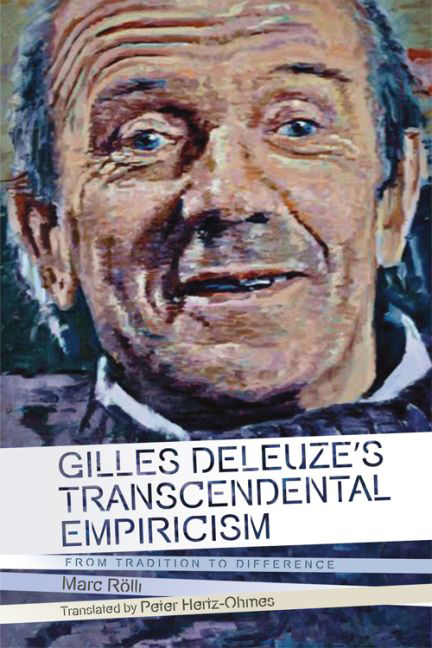Book contents
Author's Foreword
Published online by Cambridge University Press: 27 April 2017
Summary
The name ‘Deleuze’ presents a philosophical challenge on all possible and impossible levels. Concepts like difference, immanence, event, virtuality, de- and reterritorialising, or rhizome send signals. His works are extensively employed in cultural studies, in art and media theory, in political inquiry and in the humanities. This employment wavers between true topicality and trendiness, conceptual investigation and jargon. Thus in recent years authors like Michael Hardt and Antonio Negri, Manuel Delanda, Alain Badiou and Slavoj Žižek, in publishing on Deleuze, have effectively drawn attention not only to him but also to themselves. These efforts are not always philosophically relevant, but they underscore how adaptable to cultural studies Deleuze's concepts can be.
Academic philosophy, on the other hand, has resisted involvement and kept its respectful distance. One doesn't want to get one's hands dirty. It is better not to engage in a philosophical adventure if it isn't yet clear whether it is worth the work. The philosopher Deleuze's language and style come across as strange, complex and confusing. At the same time, his alliance with Félix Guattari on the theme of ‘Capitalism and Schizophrenia’ counts as a less philosophical and more experimentally directed project that perhaps conveys excitement and inspiration, but doesn't boast really serious intent.
The present book on transcendental empiricism first appeared in 2003. It grew out of a dissertation in the field of philosophy, written mainly between 1999 and 2001, which was overseen by Bernhard Waldenfels in Bochum. In those days the academic situation was as tricky as now. A wide reception of Deleuze developed in North America, concentrated primarily in non-philosophical fields. In German-speaking regions, all of his books were translated but reception was limited to a few areas like film theory or the critique of psychoanalysis. Deleuze and Deleuze-Guattari shared the ambiguous ‘fame’ of so-called ‘poststructuralist’ or ‘postmodern’ authors, and counted in philosophy as outsiders and radicals who terminated all modernisation projects and thus also the emancipation efforts of the Enlightenment.
- Type
- Chapter
- Information
- Gilles Deleuze's Transcendental EmpiricismFrom Tradition to Difference, pp. ix - xivPublisher: Edinburgh University PressPrint publication year: 2016



